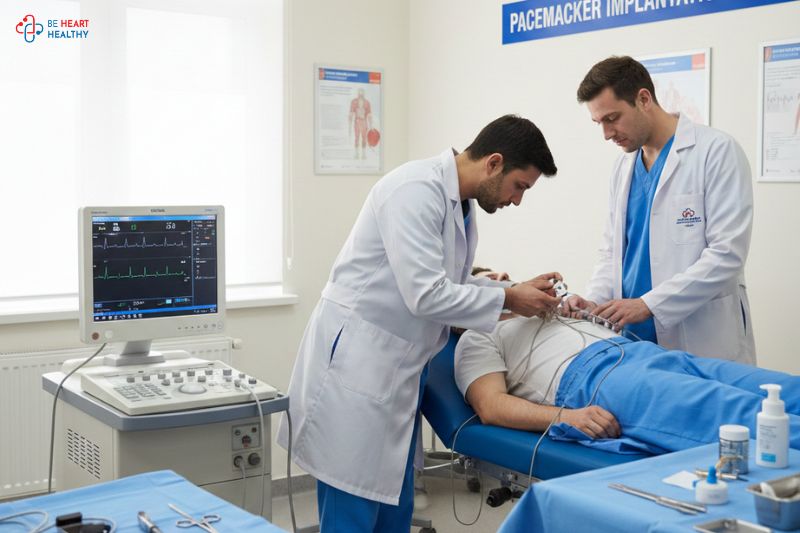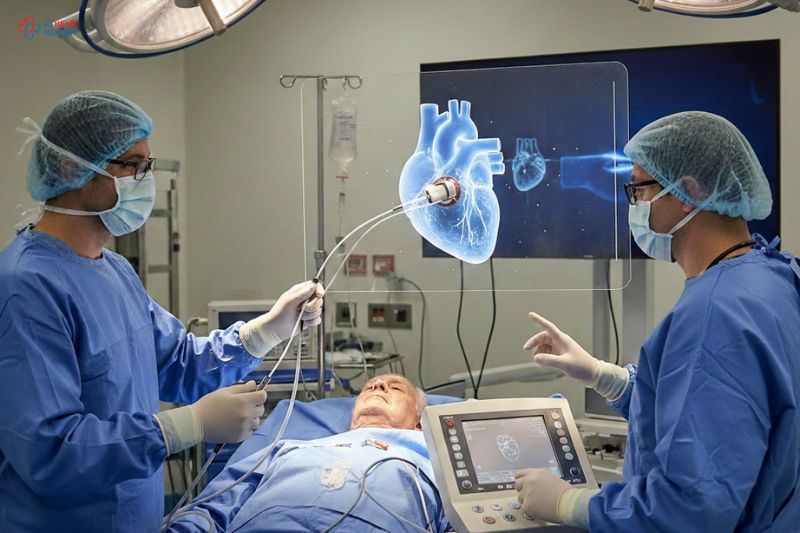Importance of a Healthy Heart
Modern lifestyles, marked by sedentary habits, stress, and poor dietary choices, have created a perfect storm for cardiovascular problems. Every heartbeat is precious and deserves your attention. Heart specialists in Mumbai, equipped with advanced knowledge and technology, can detect heart valve diseases early, which can be life-saving. Prompt care for your heart is crucial, as any delay may lead to serious or life-threatening complications.
Functional Disturbances in Heart Valves
Heart valve diseases affect the aortic, mitral, pulmonary, and tricuspid valves. These valves open and shut with each heartbeat to keep blood flowing correctly. The normal flow of blood is disrupted if the valves are leaky (regurgitation), too narrow (stenosis), or do not have a proper opening (atresia). This disruption necessitates treatment to restore normal function and prevent further complications.
Be Alert – Care for Your Heart
Extreme tiredness or fatigue is often the first symptom of heart valve disease. Other symptoms include fainting, breathing difficulty, chest pain, irregular heartbeats, heart murmurs, and swelling around the eyes, ankles, or abdomen. Consulting a specialist helps determine if these symptoms are related to heart valve issues. It’s crucial to seek medical advice at the first sign of trouble.
Heart Valve Disease Treatment
Heart valve disease is a lifelong condition, but several treatment options can manage and improve quality of life. The initial step of heart valve disease treatment involves medication to relieve symptoms and prevent complications. These medicines control high blood pressure and heart rate, reduce blood clot risk, and alleviate symptoms like shortness of breath. Antibiotics are prescribed for infections causing heart inflammation.
Heart Valve Repair and Replacement
For some individuals, surgical repair of the damaged valve may be necessary. Heart valve repair restores function and improves blood flow within the heart. However, when valve damage is severe and cannot be repaired, a heart valve replacement may be required. It involves replacing the damaged valve with a biological or mechanical one, depending on factors like age and medical conditions.
Transcatheter Valve Therapy
Transcatheter valve therapy is a minimally invasive procedure for individuals unsuitable for open-heart surgery. This technique involves inserting a catheter through a blood vessel to deliver and implant a new valve within the heart. Dr. Ankur Phatarpekar is a recognized heart specialist in Mumbai, known for Transcatheter Aortic Valve Implantation (TAVI) in India. This advanced treatment option provides a less invasive alternative with quicker recovery times.
Best Exercise for Heart Health
Adopting a heart-healthy lifestyle from a young age can significantly reduce the risk of heart-related issues. A well-balanced diet rich in fruits, vegetables, whole grains, and lean proteins is the foundation of heart health. Limiting processed foods, sugary beverages, and excessive salt intake is crucial. Aerobic exercise is the best exercise for heart health, and it strengthens your heart and promotes good blood circulation. Moderate-intensity exercises like brisk walking, running, swimming, cycling, playing tennis, and jumping rope, ideally for 30 minutes a day and five days a week, will improve heart health. Stress-reduction techniques like meditation, mindfulness, and hobbies, and also refraining from smoking, are also important.
Advances in Heart Valve Treatment
Recent advancements in heart valve treatment have improved patient outcomes and quality of life. Innovations such as minimally invasive surgical techniques, advanced imaging technologies, and personalized medicine approaches are transforming heart valve disease treatment. These advancements allow for more precise diagnostics, less invasive treatments, and faster recovery times. Patients now have access to a wide range of treatment options tailored to their specific conditions and health profiles, ensuring better management of heart valve diseases and enhancing overall heart health.
Recognizing the signs of needing a heart valve replacement, such as severe fatigue, shortness of breath, chest pain, and swelling, is crucial. With several advanced heart valve disease treatment options available, prompt medical attention will successfully manage the condition and restore the quality of your life.



